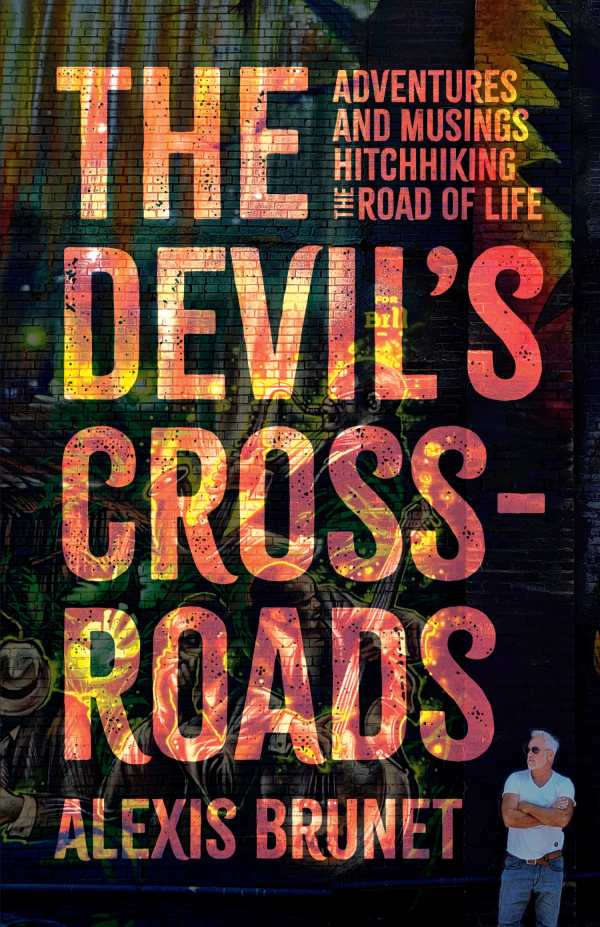The Devil's Crossroads
Adventures and Musings Hitchhiking the Road of Life
The transformative events of a man’s life are gathered together in this amiable book that models decision-making at crossroad points.
A memoir with self-help elements, Alexis Brunet’s book The Devil’s Crossroads straddles genre boundaries and international borders.
Brunet once stood at the famous Mississippi crossroads where legend says the great blues musician Robert Johnson traded his soul to the devil for fame and fortune. This is the first crossroads image in the book; subsequent crossroads images connect its eighteen chapters, which are all about turning points across the span of fifty years. There are stories from Brunet’s childhood in Europe and tales from his life as a husband, father, and businessman in Miami.
Within the text, time is compressed, as are the significant events, people, and places Brunet encountered. There are a bevy of beaches, mountains, cities, and countries represented, but the descriptions of each are postcard-sparse. For example, one chapter covers a six-week honeymoon tour of East Asia, including stops in Tokyo, Mount Fuji, and Bangkok—more than eight stops whose events are compressed on six pages, absent sensory details. As a travelogue, the book’s reliance on summary is a detraction.
The crossroads events are also underattended to. A skateboarding championship in Cannes, for example, is summarized and followed by an account of another significant event while surfing enormous waves in Morocco. And the parade of incidents is too rote, despite each event being distinct and worthy of exploration. The same pattern occurs in sections about everyday experiences, as with Brunet taking a course on alcoholic families to better understand a longtime girlfriend; there are no details of what was learned, how it made anyone feel, or whether the course was beneficial to the relationship. Indeed, the most evocative passages are the recreated responses to other people inquiring about the events: when Brunet’s friends asked him what it felt like to ride a wave, he advised them to “imagine skiing down a mountain that is constantly moving.”
The book’s self-help element comes in when audiences are asked to identify their own opportunities for life-changing decision-making. In plain terms, life lessons are set forth in the book’s final chapters. But these are too separate from the stories that led to them, functioning most as standalone pieces of wisdom. And while the book’s early chapters have a friendly, casual tone, the book’s conclusion is more serious. Direct addresses to the audience and sustained encouragement on identifying the crossroads in one’s life consume the closing pages.
A travelogue that models voracious living, The Devil’s Crossroads celebrates rich experiences and asserts that a personal and collective good comes from telling one’s own story.
Reviewed by
Michele Sharpe
Disclosure: This article is not an endorsement, but a review. The publisher of this book provided free copies of the book and paid a small fee to have their book reviewed by a professional reviewer. Foreword Reviews and Clarion Reviews make no guarantee that the publisher will receive a positive review. Foreword Magazine, Inc. is disclosing this in accordance with the Federal Trade Commission’s 16 CFR, Part 255.

